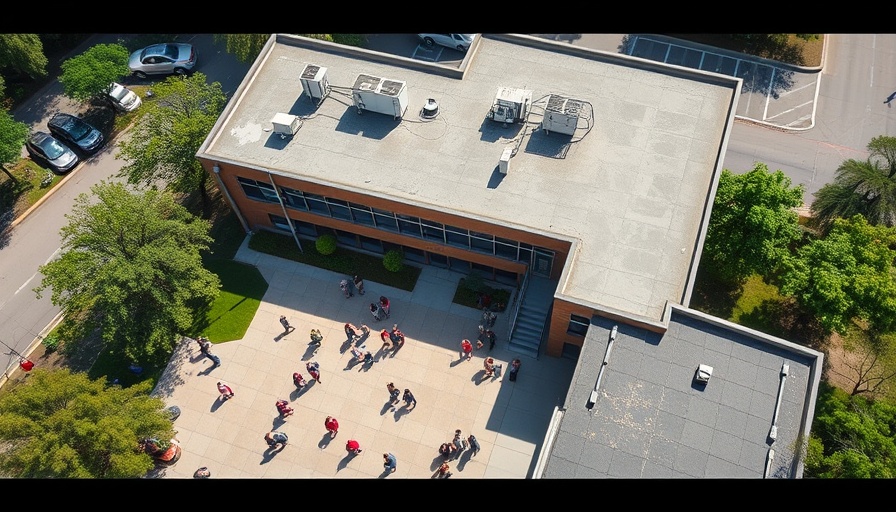
Houston’s Unrelenting Heatwave Poses Challenges
As temperatures in Houston soar, the lack of air conditioning at Heights High School presents a serious concern for students and faculty. Amidst reports of the local area facing a relentless heatwave, the implications of malfunctioning HVAC systems are becoming increasingly dire. With temperatures reaching well into the 90s, many are left questioning how educational institutions can safeguard their students during extreme weather conditions.
Balancing Education and Safety: The Dual Challenge
Schools in Houston, particularly Heights High School, face the daunting task of balancing educational needs with safety. According to reports, the ongoing HVAC issues have led to the school's administration notifying parents about the situation and the potential for further complications. This predicament raises alarms about the capacity of school infrastructure to handle climate adversities, a topic that has gained traction in recent years as climate change increasingly affects weather patterns.
Community Response: Rallying for Solutions
Local parents and community members have expressed their concerns over the HVAC controversies. Many have taken to social media platforms, urging local authorities to address the situation promptly. The importance of community engagement in such crises cannot be overstated; effective communication between parents, administrators, and local government is crucial for finding quick solutions.
Broader Implications of HVAC Failures in Schools
Heights High School isn’t the only institution facing HVAC challenges. A survey conducted earlier this year revealed that many schools across the area struggle with outdated systems that are ill-equipped to deal with today’s extreme temperatures. This rings alarm bells for educators and policymakers alike. Experts argue that regular maintenance and timely upgrades to school infrastructure are paramount to ensuring students’ well-being.
Actions Taken: Are They Enough?
In response to the growing alarm, local officials have begun discussing options to expedite repairs. However, the question remains: will these measures suffice? Stakeholders call for more than band-aid fixes; they emphasize the need for a comprehensive plan that addresses long-term climate challenges and school infrastructure improvements.
Looking to the Future: Predictions for School Safety Amid Heatwaves
As Houston faces increasing occurrences of extreme temperatures predicted in the future, preparing schools for such contingencies will be paramount. This situation at Heights High School is a microcosm of a larger issue confronting educational systems nationwide. With climate experts warning of escalating weather extremes, strategies to address such challenges could include adopting resilient infrastructure solutions and integrating climate education into school curriculums.
Call to Action: Join the Conversation
It is imperative for families, educators, and community leaders to engage in ongoing dialogues about the root causes of this HVAC failure and advocate for systemic change. By staying informed and involved, residents of Houston can make their voices heard and push for necessary improvements to school infrastructure. The health and safety of students depend on it.
 Add Element
Add Element  Add Row
Add Row 



Write A Comment